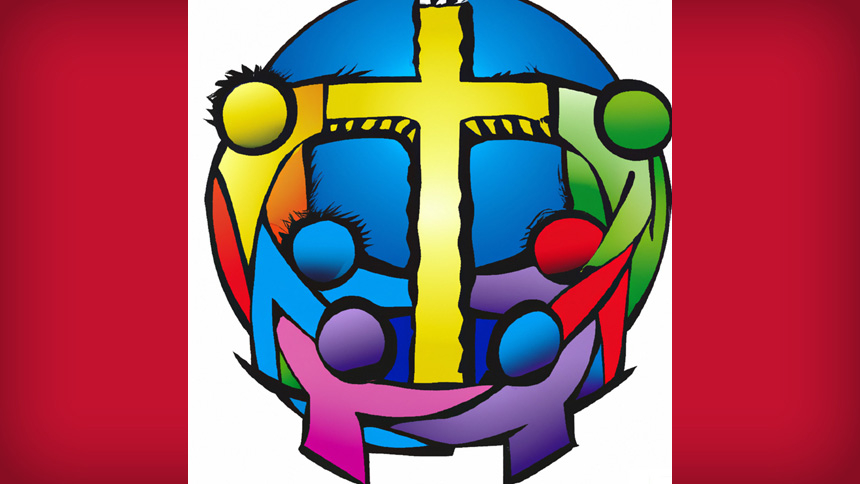
2nd Sunday in Ordinary Time
January 15, 2023
Christian unity is a gift from God. This week, from January 18-25, we are celebrating more than100 years of Prayer for Christian Unity. This milestone reminds me of the central role that the guidance of the Holy Spirit plays in the ecumenical movement.
We pray during this week and throughout the year that the Spirit will bring Christians closer together. Pope John Paul II in his encyclical "Ut unum Sint" ("That They May be One") quotes the Second Vatican Council:
"This change of heart and holiness of life, along with public and private prayer for the unity of Christians, should be regarded as the soul of the whole ecumenical movement, and can rightly be called 'spiritual ecumenism.'"
The well-known Dominican ecumenist Yves Congar said: "The way through the door of unity is on our knees.”
Paul Couturier put it aptly: “It is impossible for Christians to understand each other unless they pray.”
Through the power of the Spirit, Christians will come into “full communion.” We will be more faithful disciples of Jesus who prayed that “They all may be one” (Jn17:21).
In today’s Gospel, John the Baptist testified that at the baptism of Jesus the Holy Spirit descended on Jesus and that he became the primary bearer or vehicle of the Spirit. This in turn qualified Jesus to baptize with both water and the Holy Spirit. And today we share in common with our Orthodox and our Protestant sisters and brothers the gift of baptism and the gift of the Holy Spirit. So let us reflect together on these gifts that we share.
Baptism means participating in the life, death and resurrection of Jesus Christ. Jesus went down into the river Jordan and was baptized in solidarity with sinners in order to fulfill all righteousness (Matt. 3:15). This baptism led Jesus along the way of the Suffering Servant, made manifest in his sufferings, death and resurrection (Mark 10:38-40, 45).
Baptism is a sign and a seal of our common discipleship. Through baptism, Christians are brought into union with Christ, with each other and with the Church of every age and place. Our common baptism, which unites us to Christ in faith, is thus a basic bond of unity. We are one people and are called to confess and serve one Lord in each place and in the entire world. The union with Christ which we share through baptism has important implications for Christian unity. “There is …one baptism, one God and Father of all…” (Eph 4:4-6). Therefore, our one baptism into Christ constitutes a call to the churches to overcome their divisions and visibly manifest their fellowship.
To sum up, by sharing our common baptism we have real but imperfect communion with our Orthodox and Protestant sisters and brothers.
But with them we also share the same Holy Spirit. There is no Presbyterian Holy Spirit, no Orthodox Holy Spirit, no Catholic Holy Spirit. It is the same Spirit who revealed Jesus as the Son (Mark1:10-11) and who empowered and united the disciples at Pentecost (Acts 2). God bestows upon all baptized persons the anointing and the promise of the Holy Spirit, marks them with a seal and implants in their hearts their first installment as sons and daughters of God. The Holy Spirit nurtures the life of faith in their hearts until the final deliverance when they will enter into its full possession, to the praise of the glory of God (II Cor. 1:21-22; Eph 1:13-14).
But in what sense can the Church of Jesus Christ so divided be united? The answer is found in the call of this ecumenical movement to pray without ceasing. Despite our many differences, the church is united in Christ, and in its constant need for God, and thus its need for prayer.
The language of prayer unites Catholic, Orthodox and Protestant believers. And the good news is that, when we are so united in prayer, praying without giving up, praying without letting our differences discourage us, praying without allowing obstacles to get in the way, we are also united with each other, across denominational, national and cultural lines. As Paul says, “…there is neither Jew nor Gentile in Christ, for all are one.” Let us celebrate our spiritual oneness in a truly ecumenical manner during this year, by praying for each other, with each other and by means of each other so that the command to pray without ceasing can truly be fulfilled.

